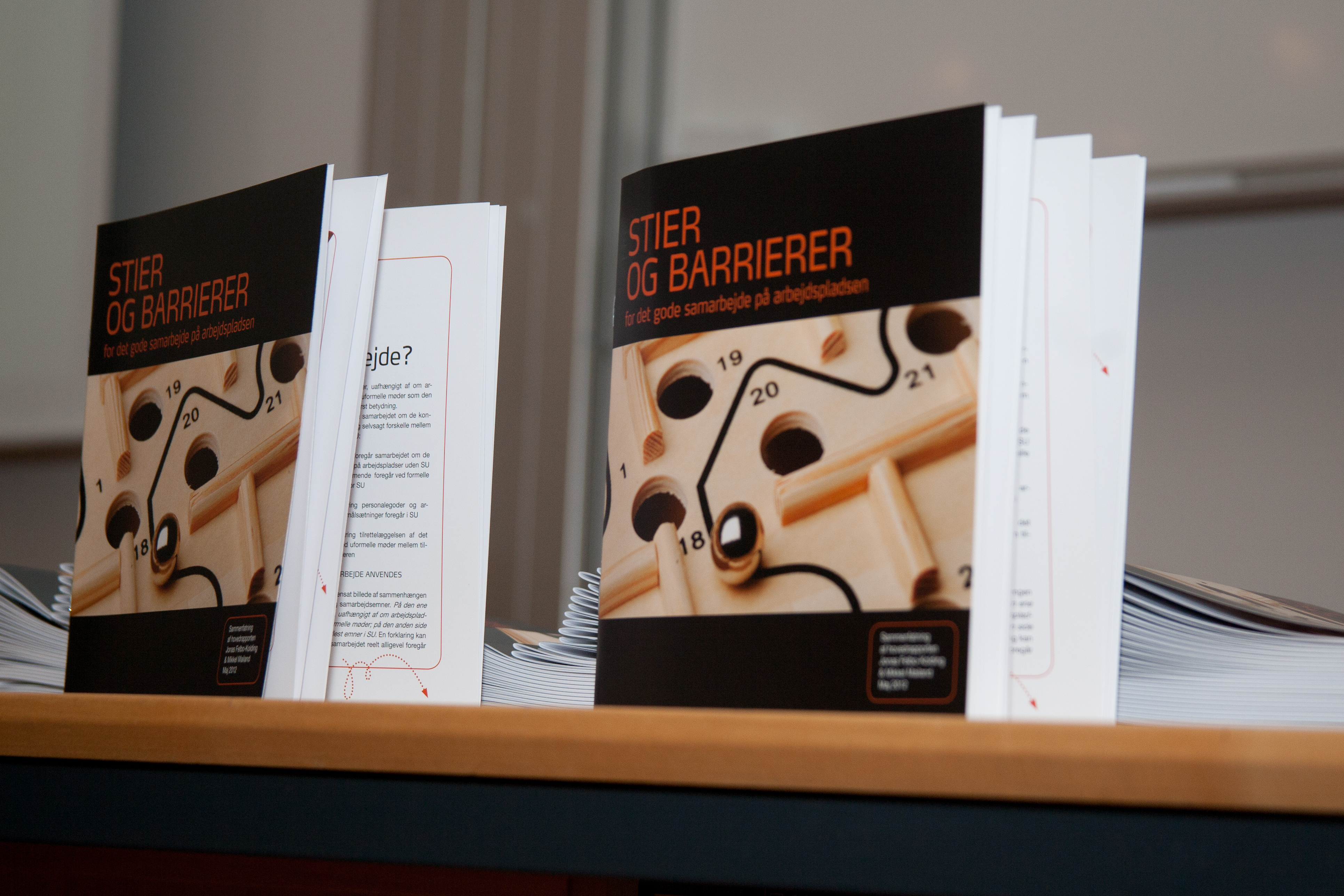Paths and barriers towards good quality cooperation in Danish manufacturing workplaces
Research paper by Jonas Felbo-Kolding & Mikkel Mailand
A number of studies have provided important knowledge about the cooperation at company-level in Denmark.
Firstly, from these studies it is clear that although not all companies have established cooperation committees, cooperation takes place anyway. In other words, the cooperation between employers and employee representatives is informal as well as formal.
The studies have in general also reported on a relatively well-functioning cooperation between employees and managers and pointed to the importance of trust (Agervold 2002; Navrbjerg et al. 2010; Epinion 2007). There is, however, a lack of knowledge regarding the importance of other factors than trust in the evaluation of the quality of workplace cooperation.
The present paper addresses this knowledge gap and analyses what other elements than trust are good quality cooperation at the workplace level.
Secondly, most major existing studies on cooperation have tended to take merely a snapshot of workplace cooperation. By combining quantitative analysis with qualitative analysis the paper attempts to identify the dynamics of cooperation by focusing on how cooperation develops over time and on factors that can obstruct good quality cooperation.
Thirdly, but related to the question of the dynamics of cooperation, the paper aims to illustrate how cooperation functions under conditions that have not been present when the previous studies from the 1990s and 2000s were conducted.
The economic crisis of the last couple of years provides an important framework for the study, because the manufacturing industry as a whole has been affected in one way or another by the economic crisis. The paper attempts to uncover whether the cooperation at workplace level has been affected by the economic crisis.
Summing up, the aim of this paper is to analyse changes in the quality of cooperation between employees and management at workplace-level in Danish manufacturing companies – before, under and after the economic crisis. The focus of the project is in other words the dynamic dimension of cooperation at workplace level.
Methodologically, the paper draws on analyses of the answers to questionnaires from 226 HR-responsible managers and 614 shop-stewards and other employee representatives at Danish workplaces in the manufacturing industry.
In order to get a deeper knowledge of the development of workplace-level cooperation in the manufacturing industry and its dynamics, the quantitative study was supplemented by a qualitative study of eight workplaces. Managers and shop-stewards from these workplaces were interviewed about their cooperation.
The paper has addressed four research questions and several other connections have been analysed and discussed. Some of the results are more important and surprising than others. These make up the project’s six main conclusions:
• Cooperation at workplaces in Denmark is seldom either solely good or solely bad.
• The quality of cooperation depends on a match between the expectations of shop stewards and managers regard the level of involvement.
• The achievement of the formal goals of the Cooperation Agreement presupposes informal relations.
• A greater share of shop stewards than managers appreciate cooperation committees, however managers regard the quality of cooperation better than shop stewards.
• Economic crisis does not automatically equal bad cooperation.
• A greater share of managers than shop stewards emphasize the importance of cooperation in relation to their handling of the economic crisis.
The project was presented at a seminar June 11 2012.
The research paper and presentations can be downloaded in Danish below.
Download hele hovedrapporten (pdf)
Download sammenfatning af hovedrapporten (pdf)
Download præsentation - Flemming Andersen, Aasted (PowerPoint)
Download præsentation - Jonas Felbo-Kolding, FAOS (PowerPoint)
Foto: Steen Kelså
